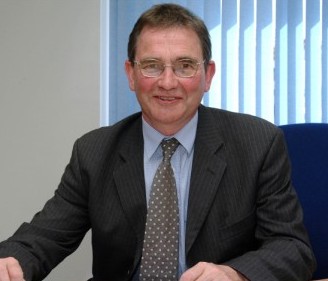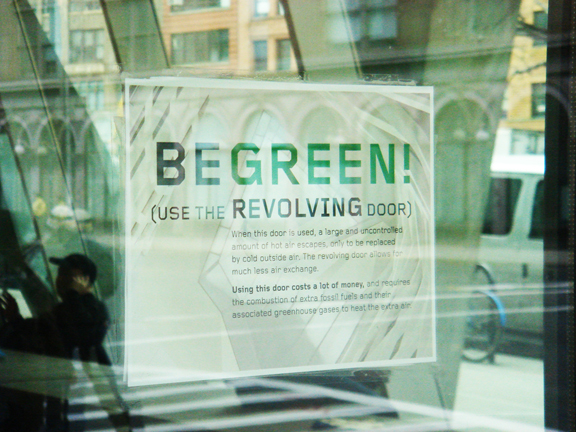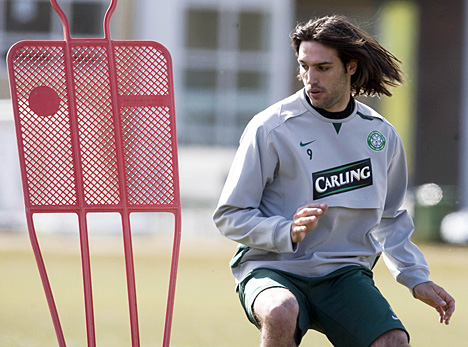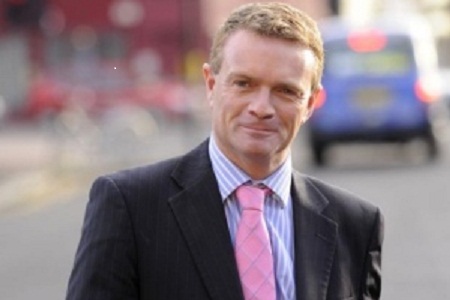Brain Wilson in another article grasps the nettle when he said:
“ The disfiguring characteristics that attach themselves to Scottish football are products of our society, rather than the other way round. One of these is sectarianism which, on the fringes, finds expression through football. That is the only reason for the relatively unremarkable events, by any less parochial standards, of last Wednesday night being translated into a crisis of national significance. Scotland’s shame, and all that. However, the logic is to confront sectarianism — not football.”
His suggestion for doing that – “Put Andy Cameron in charge of a summit and he might actually make a difference” – is at least a different approach, but even Andy Cameron needs the right stage to work on and that stage simply does not exist at present.
That takes me back to my letter to the First Minister of 2008. There was a post script to it that said:
“PS: Is there any thinking on using something like a Truth Commission like that discussed at this link for Northern Ireland
http://www.brandonhamber.com/publications/Paper%20Rights%20and%20Reasons%20CAMBRIDGE.doc about
Rights and Reasons: Challenges for Truth Recovery
in South Africa and Northern Ireland
from http://www.brandonhamber.com/index.htm
because much of their past has been shared by Scotland and finding and facing the Truth may be the only way forward. It would be a brave man with a brave heart that went down that road mind you.”
It is generally accepted that the link to the particular brand of Protestantism from Northern Ireland to football in Scotland came about because of the influx of shipyard workers from Belfast in 1912, when Harland and Wolf opened up in Govan. They brought in their own part in Irish history with them, and In drawing on that support Govan based Rangers became identified with and inseparable from their thinking.
The Catholic Irish had already arrived before then to establish Celtic , bringing their own Irish history with them and in the geographical bringing together of the two groups the foundations of sectarianism through football in Glasgow were established. The extreme manifestations of that link to Ireland’s history still turn up today in the sinister threats to the life of the Celtic manager Neil Lennon and his vilification in the Scottish media and on Internet sites.
Well maybe all this has a purpose; I would like to think so. Maybe the time has come for brave men to try a brave approach, maybe it is time for true leadership to be shown and look a lot more closely at the principles behind Truth and Reconciliation to see if they do offer a new way forward in the fight against the blight of sectarianism.
At this point it is necessary to delve into one of the key underlying principles of T & R, which is the practical application of forgiveness, a much misunderstood concept. Exploring what forgiveness is and perhaps, just as important, what it is not, became a kind of hobby of mine after noticing how much its greatest exponent – Christ as a human being – spoke about the necessity for forgiveness.. To that end I found the work done by the International Forgiveness Institute in Madison, Wisconsin most enlightening. They have a web site which provides definitions and the actual process model of forgiving itself is also described and I commend it to everyone.
However a precondition for the existence of forgiveness is that a wrong has to have occurred, without a wrong there is nothing to forgive. In the context of Celtic supporters in the West of Scotland what wrongs do I think we as a group feel are taking place? How do we feel “wronged” and note that feeling wronged is more emotion than thought, something we feel based on what we perceive. The following is not an exhaustive list.
I think we feel wronged when
- The SFA have to commit after the recent summit to respecting the laws of the game and applying them rigorously, for we perceive that has not been the case on many occasions.
- As part of an ongoing campaign our manager is picked upon, vilified and demonised after a game when the other wrong doers on the evening are not treated in the same strong terms by the media whilst we also wait to see if the players involved will actually receive condemnation and punishment on the same scale as was applied to Neil Lennon before he appealed, commensurate with harassment of the match official
- A supporter makes a valid point on air but his feelings are dismissed on the grounds that he is simply points scoring, indulging in “whataboutery” or
- He is told, if his point has merit, that “one side is as bad as the other” as if that generalisation is either the answer to the complaint or renders it void
- Over the course of a season we see a series of decisions from which Rangers inevitably benefit, but are told we are paranoid or delusional, even when in the following season it emerges we might actually have grounds to be suspicious of those administering the game.
- No investigation has ever happened into the role of Hugh Dallas in the week after the “ Doughiegate” game at Tannadice, when he did not reveal what he knew to be true to the listening public in his statements to them.
These are perceived wrongs from recent history and I am sure a book could be filled by others from Celtic’s past; in fact I recall two excellent books on our paranoia already have, but these small wrongs are only symptomatic of the major wrong at play which is:
The systemic and ongoing dismissal by authority in Scotland, civil, football as well as the media of our feelings of being wronged itself, which can best be summed up as “Nothing to see here Timmy, move on.”
It is in the acceptance that wrongdoing is even taking place and so making that a truth, by those perceived by Celtic supporters to be the main wrongdoers , that the way to, if not reconciliation, at least rivalry without the poison, lies. That is a road so far not sign posted never mind less traveled.
In 2007 there was a paper published about a project about forgiveness in Northern Ireland involving school children who were witnesses to everyday violence that might have something to teach Scotland. (Waging peace through forgiveness in Belfast, Northern Ireland II: Prof R D Enright IFI and others). The overall conclusion was that the work undertaken had had positive results as measured and two key findings emerged.
The first was that those children involved in the project actually benefited just from finding out about forgiveness itself, without actually trying to practice it. I was not surprised at this having seen the benefits on an on line forum I was involved in, whose members were folk feeling they had been very wronged, which made reference to the forgiveness information I have already linked to at the IFI.
The second and very important finding was the necessity for Unconditionality. This is defined as the understanding that all people are equal, regardless of personal characteristics (e.g., socioeconomic status, athletic ability etc ). Offering forgiveness involves acting on this social-cognitive understanding and the moral principle of inherent worth (all people have value) that develops from it. Would it not be wonderful if Neil Lennon and by extension the Celtic support at large felt we were viewed with unconditionality by those who judge us? Who knows we might even reciprocate.
These are the key planks of the stage on which an Andy Cameron might perform but not only does the stage not exist, neither do the planks or even the tree from which the planks have to be cut. The seeds of understanding and appreciating unconditionality and learning about forgiveness first need to be sown.
Now this is where the Scottish Government can actually do something positive with the £500,000 pledged to fighting sectarianism not only in Scotland in general but in the Celtic and Rangers football context in particular.
Some of the £500,000 money could be used to commission Truth and Reconciliation and Forgiveness experts from the world of academia to see if T & R principles would actually work in the context of Scottish Football and if not, what needs to be done to create the conditions where they might.
Any study would include what both clubs have done so far, a look at existing Government policy and what more can be done working together with the Scottish Government. It would also have to look at the role the Scottish media, one of the biggest wrongdoers in many supporters’ eyes in perpetuating the major wrong doing, (see the earlier list.)
Alex Salmond stands charged by Brian Wilson that on the First Minister’s watch he has used football to grab the headlines but not much has been done to fight the sectarianism that is in such a co dependent relationship with those same headlines. Perhaps that shows a lack of leadership, but being of a charitable mind perhaps it is as much down to lack of imagination in finding ways to tackle the actual problem.
Exploring the benefits of engaging with and utilising the relevant principles behind Truth and Reconciliation might be something a fearless and imaginative leader of any Political Party might care to advocate and champion.
Such bravery and imagination would get my vote.





